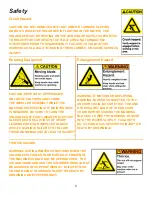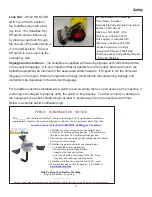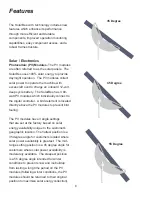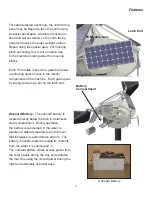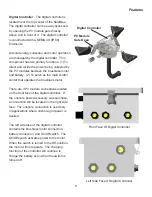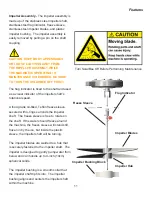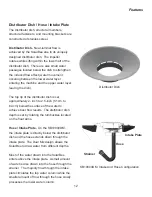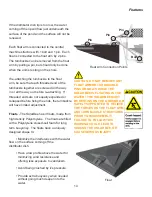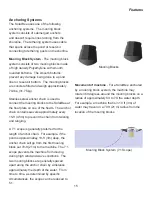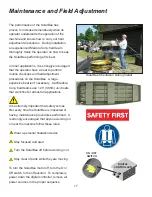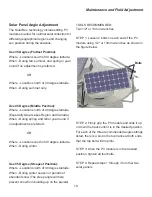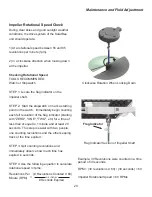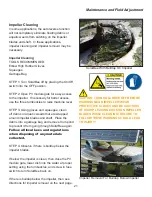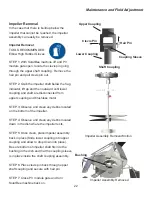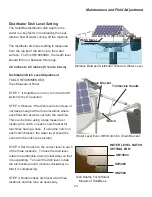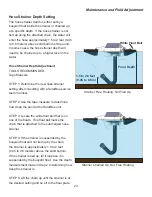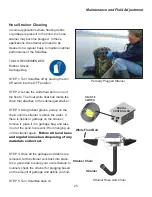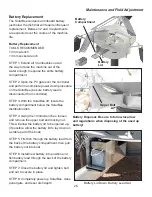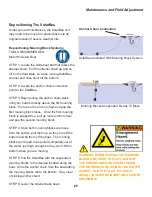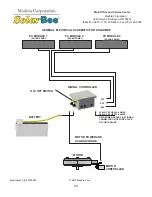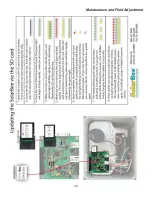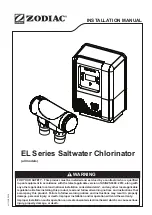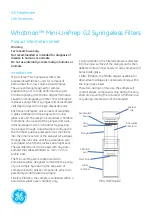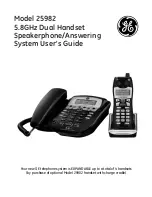
16
Features
Tethering System
Following severe weather conditions (greater
than 80-mph (129 km/hr) wind, higher than 4-ft
(1.2m) waves, or ice thaw), it is possible for
the SolarBee to drag the anchors and move
out of position. If this should happen, the pond
or reservoir operator will need to re-locate the
machine to its original position.
WARNING: IF MOVING OR DEPLOYING
MOORING BLOCKS CONNECTED TO THE
ANCHOR CHAIN, BE SURE THAT YOU AND
OTHERS ARE CLEAR OF THE ANCHOR
CHAIN BEFORE SINKING THE MOORING
BLOCKS! LOWER THE MOORING BLOCKS
INTO THE WATER SLOWLY. FAILURE TO
DO SO COULD CAUSE SERIOUS INJURY
OR DEATH BY DROWNING!
Tethering System
- The tethering system
constists of 2 tether posts or duckbill anchors
set into the shoreline across from one another.
A stainless steel cable is strung across the
pond or reservoir and tied to both tether posts.
The SolarBee has 2 short chains running from
two of the float plates on the machine out to the
cable line running across the pond or reservoir.
The tethering system is used in applications
where the body of water is very narrow or
the Mooring Block System is not applicable.
Following severe weather conditions (greater
than 80-mph (129 km/hr) wind, higher than 4-ft
(1.2m) waves, or ice thaw), it is possible for
the tether posts to pull partly or completely out
of the ground. If this should happen, the pond
or reservoir operator will need to re-locate the
machine to its original position.
Movement of machine
- For a SolarBee anchored
by a tether system, the machine will have limited
movement, however slack will be left to allow for
water fluctuation. The tether line slack will be
field determined based on tether line span and
expected water fluctuation. The SolarBee will not
rotate when it is anchored using the tether system.

